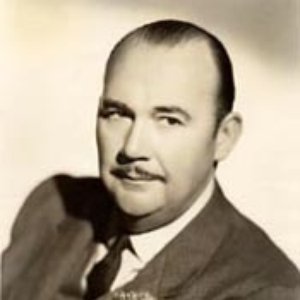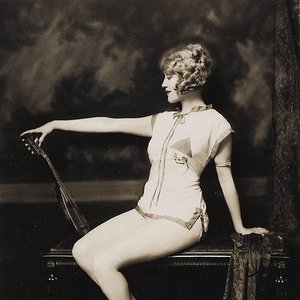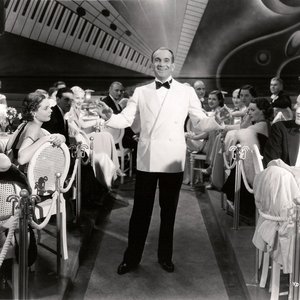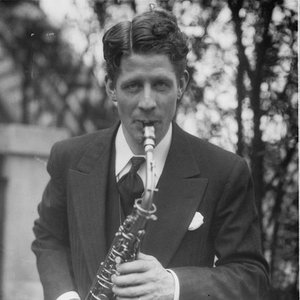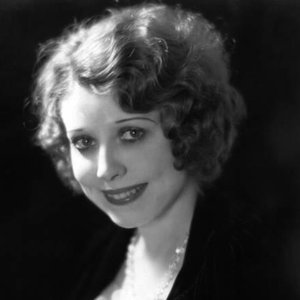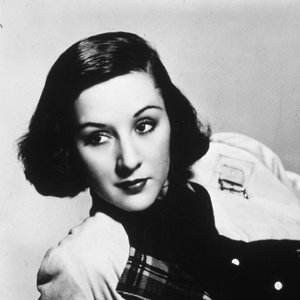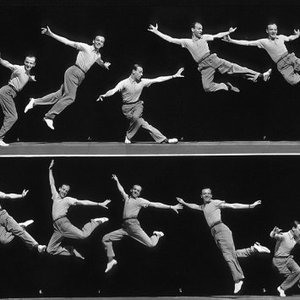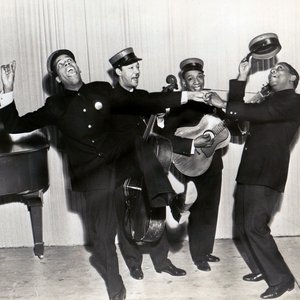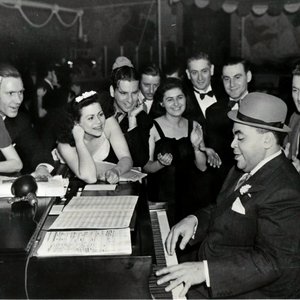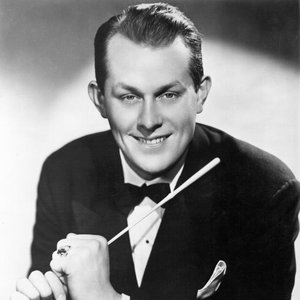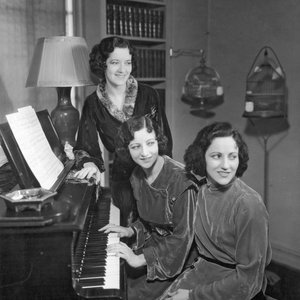Biography
-
Born
24 June 1900
-
Born In
Gainesville, Cooke County, Texas, United States
-
Died
24 January 1972 (aged 71)
Gene Austin (June 24, 1900 - January 24, 1972) was an American singer and songwriter who is considered to have been the first "crooner".
Austin was born as Lemeul Eugene Lucas in Gainesville, Texas (north of Dallas), to Nova Lucas (died 1943) and the former Serena Belle Harrell (died 1956). He took the name "Gene Austin" from his stepfather, Jim Austin, a blacksmith. Austin grew up in Minden, the seat of Webster Parish in northwestern Louisiana, located east of Shreveport. There he learned to play piano and guitar. He ran away from home at fifteen and attended a vaudeville act in Houston, where the audience was allowed to come to the stage and sing. On a dare from his friends, Austin took the stage and sang for the first time since singing as a Southern Baptist choir boy. The audience response was overwhelming, and the vaudeville company immediately offered him a billed spot on their ticket.
Austin joined the U.S. Army at the age of 17 in hopes of being dispatched to Europe to fight in World War I. He was first stationed in New Orleans, where he played the piano at night in the city's notorious vice district. His familiarity with horses from helping his stepfather in his blacksmithing business also prompted the Army to assign Austin to the cavalry and send him to Mexico with General John Pershing's Pancho Villa expedition, for which he was awarded the Mexican Service Medal. Thereafter, he served in France in the Great War.
On returning to the United States in 1919, Austin settled in Baltimore, Maryland, where he intended to study dentistry. Soon, however, he was playing piano and singing in local taverns. He started writing songs and formed a vaudeville act with Roy Bergere, with whom he wrote "How Come You Do Me Like You Do." The act ended when Bergere married. Austin worked briefly in a club owned by Lou Clayton, who later was a part of the famous vaudeville team Clayton, Jackson and Durante. RCA Victor bought his popular song "When My Sugar Walks Down the Street." In the next decade with RCA, Austin sold over 80 million records – a total unmatched by a single artist for 40 years. Best sellers included "The Lonesome Road," "Riding Around in the Rain," and "Ramona."
Arriving with the advent of electrical recording technologies (earlier, acoustical technologies had been used) Austin soon gave birth to the "crooner" form (a clear light tenor) of singing of the 20's and 30's, taking over from the more sentimental style of tenor vocals popularized by such singers as Henry Burr and Billy Murray. Such later crooners as Bing Crosby, Frank Sinatra, and Russ Columbo all credited Austin with creating the musical genre that began their careers. Gene Austin became enormously popular in the late 1920s. His recording of "My Blue Heaven" sold over 12 million records and until Bing Crosby's "White Christmas" replaced it as the largest selling record of all time.
Offered to work in Hollywood at the height of his career as the "Voice of the Southland", Austin appeared in three films, "Belle of the Nineties" (1934), "Klondike Annie" (1936) and "My Little Chickadee" (1940), at the request of his personal friend, Mae West.
Gene Austin married his first wife, Kathryn Arnold, a dancer, in 1924 and divorced her in 1929. They had a child, Ann, born in 1928. Austin married his second wife, Agnes Antelline, in 1933, and their daughter Charlotte was born that same year. He and Agnes divorced in 1940. Austin then married actress Doris Sherrell in 1940, and divorced her in 1946. He married wife number four, LouCeil Hudson, a singer, in 1949, and the marriage lasted until 1966. Austin married Gigi Theodorea in 1967; this was his fifth and final marriage.
In 1956, CBS made a television drama about Austin's life.
In 1962, Austin campaigned unsuccessfully for the Democratic nomination for governor of Nevada. He polled only 5,017 votes (10.21 percent) to his opponent, Grant Sawyer, who received 40,168 ballots (81.4 percent) Sawyer then won the governorship by a nearly 2-1 margin over weak Republican opposition in the fall campaign.
Austin had retired to Palm Springs, California, in the late 1950s and had been active in civic boards there until 1970. Income from his record sales allowed him to live comfortably the rest of his life. He died in Palm Springs of lung cancer and was interred in the Forest Lawn Memorial Park Cemetery in Glendale, California.
In 1978, Gene Austin was posthumously awarded a Grammy Hall of Fame Award for his 1928 recording of Bye, Bye, Blackbird, which has long been considered recorded music's definitive rendition of that song.
In 2005, Gene Austin was nominated and admitted to the Grammy Hall of Fame.
Artist descriptions on Last.fm are editable by everyone. Feel free to contribute!
All user-contributed text on this page is available under the Creative Commons Attribution-ShareAlike License; additional terms may apply.
